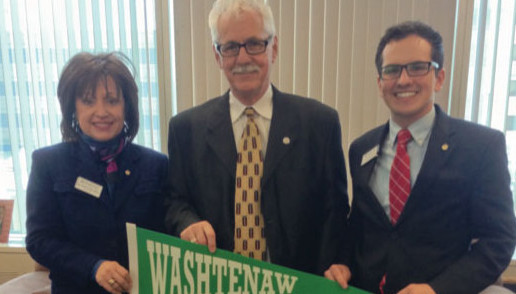
Governor Snyder released his budget recommendation for fiscal years 2015 and 2016 in February, with a recommendation that Washtenaw Community College receive the highest percentage increase of all 28 Michigan community colleges. If approved by the Michigan House and Senate, this would be the second year that WCC would receive the highest percentage appropriation.
The Governor’s recommended budget would allocate baseline funding for each community college equal to this year’s funding level plus one and a half percent. Each college will then receive another approximate one and a half percent based on a set of performance metrics including: enrollment, weighted degree completions, administrative costs as a percentage of core expenditures and best practices which enhance local strategic value. Local strategic value includes the colleges service to and partnerships with the community, through economic development and business partnerships, educational partnerships with k-12 and universities, and community services provided. Based on WCC’s performance in these four metrics, the Governor recommends a 3.7 percent or $466,500 increase for WCC fiscal year 2015.
While an increase is always good news for the college, there are a few additional provisions that each institution must comply with in order to receive an increase. Of particular note is the requirement that community colleges limit any tuition increases to 3.2 percent. If a college should increase tuition by a larger percentage, they would forfeit their three percent increase.
The Governor’s recommendation is the first step in a several month appropriations process and serves as an unofficial starting point for the legislative appropriations committees. Each chamber of the legislature will review, debate and set their own budget priorities before passing their recommendations, generally in April. Once approved by both chambers, the budget recommendation is sent to the Governor for his signature.